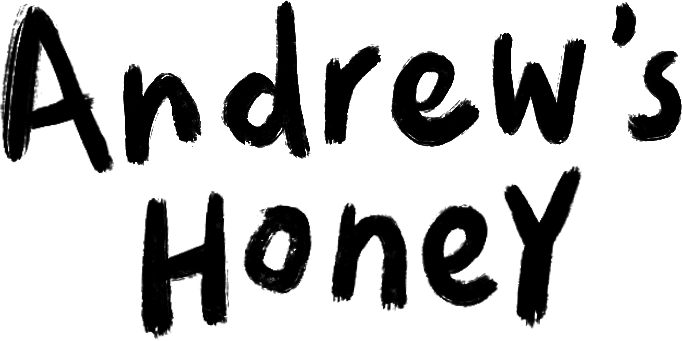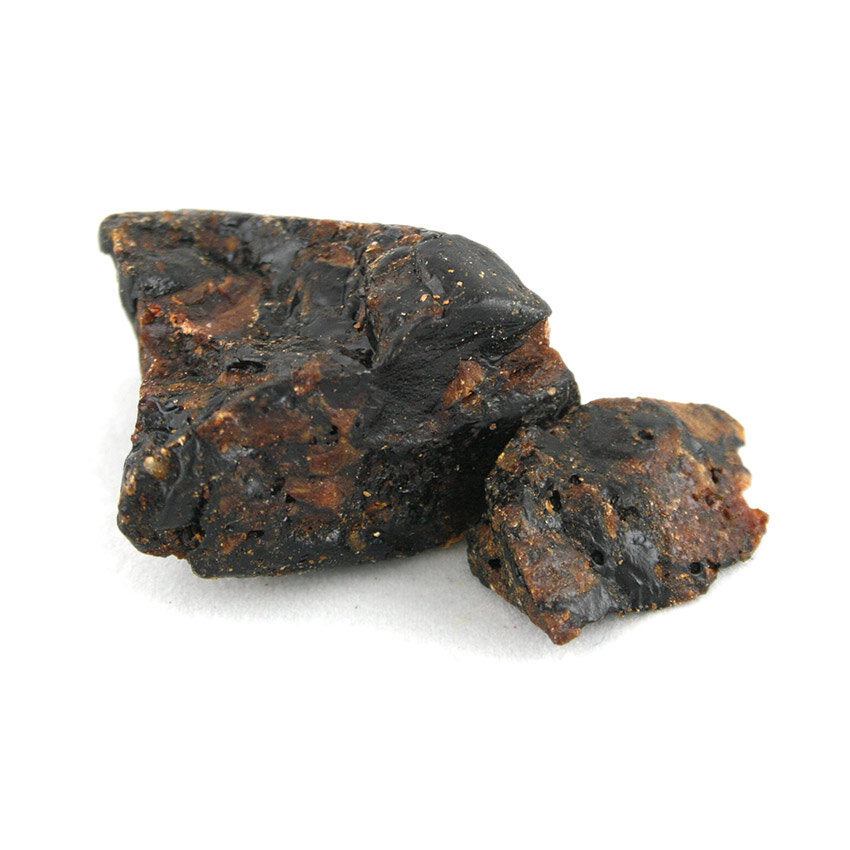Chunk Propolis
weight: 1 oz.
Propolis is the least known element from the beehive and is often dubbed Russian Penicillin A resinous mixture that honey bees collect from tree buds, sap flows, or other botanical sources, it is used by the bees as a sealant for unwanted open spaces in the hive. Its color varies depending on its botanical source, the most common being dark brown. Propolis is sticky at and above room temperature. At lower temperatures it becomes hard and very brittle.
Our propolis is scraped raw from the hive, and can be made into a tincture, or frozen and ground to be mixed into honey. Take for a sore throat, gum issues, or a chest cold.
Propolis consists of resins, waxes, volatile oils, pollen, vitamin A, B complex, E, minerals and highly active ingredients known as flavonoids or bioflavonoids. Other components include cinnamic acids, vanillin, caffeic acids, pinocembrin, tetochrysin, chrysin, isalpinin, galangin and ferulic acids. Propolis is a natural antibiotic that has no such side effects. It works against harmful bacteria without destroying the friendly bacteria the body needs. Propolis has also been proven effective against strains of bacteria that resist chemical antibiotics. In laboratory tests, propolis also has exhibited a variety of interesting antimicrobial and anti-tumor properties. The antioxidant, antimicrobial and antifungal activities of propolis also offer opportunities in food technology and cosmetics. It is apparent, that propolis incontestably has many nutritional and energy benefits.
weight: 1 oz.
Propolis is the least known element from the beehive and is often dubbed Russian Penicillin A resinous mixture that honey bees collect from tree buds, sap flows, or other botanical sources, it is used by the bees as a sealant for unwanted open spaces in the hive. Its color varies depending on its botanical source, the most common being dark brown. Propolis is sticky at and above room temperature. At lower temperatures it becomes hard and very brittle.
Our propolis is scraped raw from the hive, and can be made into a tincture, or frozen and ground to be mixed into honey. Take for a sore throat, gum issues, or a chest cold.
Propolis consists of resins, waxes, volatile oils, pollen, vitamin A, B complex, E, minerals and highly active ingredients known as flavonoids or bioflavonoids. Other components include cinnamic acids, vanillin, caffeic acids, pinocembrin, tetochrysin, chrysin, isalpinin, galangin and ferulic acids. Propolis is a natural antibiotic that has no such side effects. It works against harmful bacteria without destroying the friendly bacteria the body needs. Propolis has also been proven effective against strains of bacteria that resist chemical antibiotics. In laboratory tests, propolis also has exhibited a variety of interesting antimicrobial and anti-tumor properties. The antioxidant, antimicrobial and antifungal activities of propolis also offer opportunities in food technology and cosmetics. It is apparent, that propolis incontestably has many nutritional and energy benefits.
weight: 1 oz.
Propolis is the least known element from the beehive and is often dubbed Russian Penicillin A resinous mixture that honey bees collect from tree buds, sap flows, or other botanical sources, it is used by the bees as a sealant for unwanted open spaces in the hive. Its color varies depending on its botanical source, the most common being dark brown. Propolis is sticky at and above room temperature. At lower temperatures it becomes hard and very brittle.
Our propolis is scraped raw from the hive, and can be made into a tincture, or frozen and ground to be mixed into honey. Take for a sore throat, gum issues, or a chest cold.
Propolis consists of resins, waxes, volatile oils, pollen, vitamin A, B complex, E, minerals and highly active ingredients known as flavonoids or bioflavonoids. Other components include cinnamic acids, vanillin, caffeic acids, pinocembrin, tetochrysin, chrysin, isalpinin, galangin and ferulic acids. Propolis is a natural antibiotic that has no such side effects. It works against harmful bacteria without destroying the friendly bacteria the body needs. Propolis has also been proven effective against strains of bacteria that resist chemical antibiotics. In laboratory tests, propolis also has exhibited a variety of interesting antimicrobial and anti-tumor properties. The antioxidant, antimicrobial and antifungal activities of propolis also offer opportunities in food technology and cosmetics. It is apparent, that propolis incontestably has many nutritional and energy benefits.


